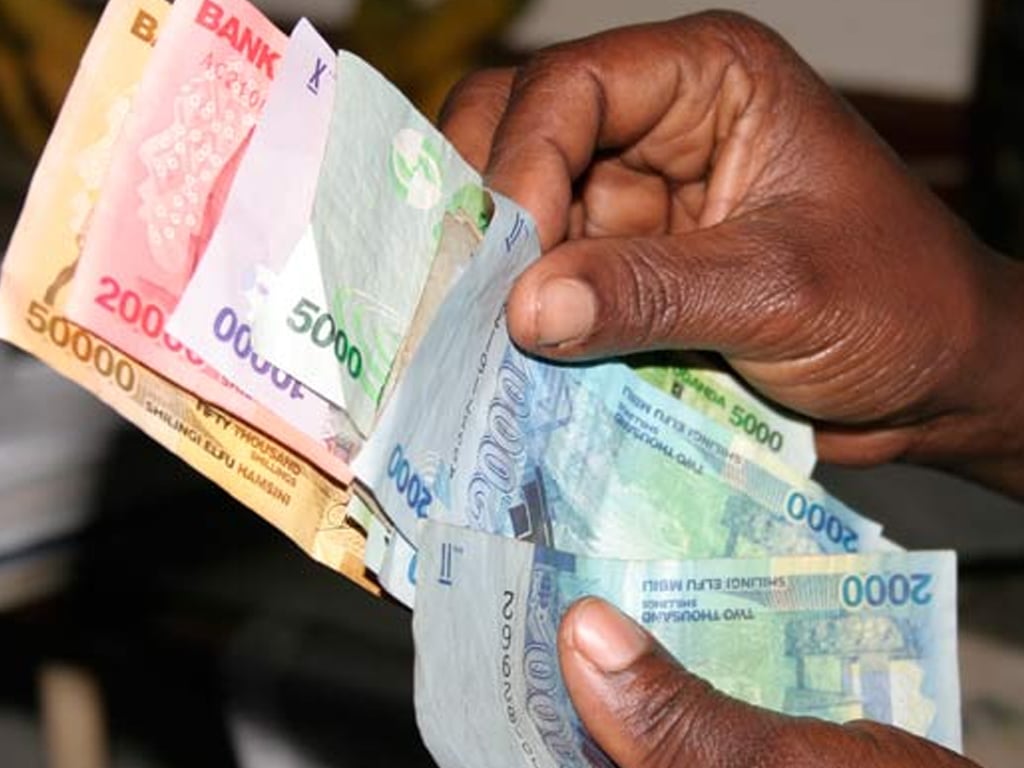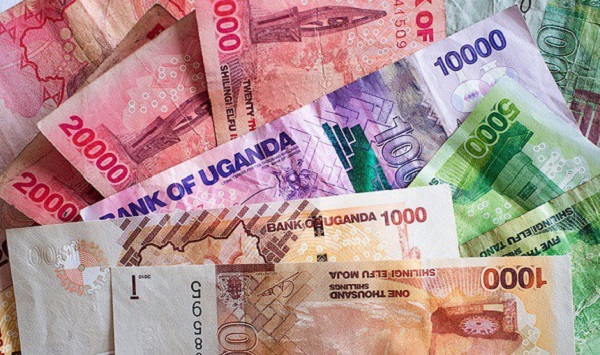
How much should I tip my safari guide?
November 6, 2025
Can I use mobile money while traveling?
November 6, 2025What is the currency used in Uganda?
When planning a trip to Uganda — whether you’re dreaming of gorilla trekking in Bwindi, cruising along the Nile in Murchison Falls National Park, or just relaxing beside the tranquil waters of Lake Bunyonyi — one of the foremost practical questions to ask before you go is: What is the currency used in Uganda?
Understanding the money system, exchange rates, and the culture of making payments in Uganda will make your traveling experience smooth, stress-free, and financially efficient. Over the years, the economy of the country has developed gradually, fusing traditional cash transactions with modern digital modes. However, being well-prepared with the right kind of currency and mode of payments on your part is crucial, especially when exploring remote safari destinations where cash is king.
Get an in-depth guide to Uganda’s currency, how to change your money, where to use your credit cards, and some tips on how to manage your travel budget like a pro.
The Official Currency of Uganda
Ugandan Shilling, abbreviated as UGX and sometimes written simply as “USh,” is the official currency of Uganda. Locally, it is referred to as “shilling” or “shillings.” The Ugandan Shilling has been in circulation since 1966, replacing the East African Shilling after Uganda gained independence.
Banknotes and coins are issued in Ugandan Shillings, controlled and regulated by the central bank, the Bank of Uganda. The notes are colourful, durable, and feature local symbols and national pride.
Current Banknotes and Coins
Banknotes in circulation include:
1,000 shillings (UGX 1,000) – brown and red in colour
2,000 shillings (UGX 2,000) – blue and light green
5,000 shillings (UGX 5,000) – orange
10,000 shillings (UGX 10,000) — purple
20,000 shillings (UGX 20,000) – green
50,000 shillings (UGX 50,000) – yellow and brown
Coins in use include:
50 shillings
100 shillings
200 shillings
500 shillings
1,000 shillings (silver coin, introduced to reduce printing costs of small notes)
Although coins are in circulation and used in everyday local transactions, most visitors will deal primarily with banknotes.
Understanding Exchange Rates
Changes in Uganda’s foreign exchange depend on world markets, inflation, and conditions of trade. As of the recent years, the rate is normally UGX 3,700-3,900 for one U.S. dollar, though it’s best to check the latest rates before traveling.
Approximate Exchange Conversions (subject to change):
1 USD ≈ 3,800 UGX
1 EUR ≈ 4,000 UGX
1 GBP ≈ 4,500 UGX
It’s smart to compare between forex bureaus and banks, since rates vary slightly, prior to exchanging large amounts.

What Foreign Currencies Are Accepted?
Although the Ugandan Shilling is the only official currency used for local transactions, the U.S. dollar is widely accepted for major tourism-related payments. Most national park fees, gorilla and chimpanzee trekking permits, and safari lodge bookings are quoted and payable in U.S. dollars.
However, it is important to note the following while using U.S. dollars in Uganda:
Accept only new series of note prints (past 2009). Older note prints are generally rejected because of problems with counterfeiting.
The notes should be clean, crisp, and not torn. Even small tears or heavy folds can render a bill unfit for usage.
Larger denominations ($50 and $100) get better rates of exchange compared to smaller ones ($5, $10, $20).
Other currencies, such as the euro (EUR) and British pound (GBP), may also be exchanged at banks and forex bureaus, though USD remains the most convenient option for travel transactions.
Exchanging Money in Uganda
There are several easy and safe ways through which you can change your money into Ugandan shillings.
1. Forex Bureaus
Forex bureaus are the most popular and reliable places to exchange money. They offer competitive rates and no service fees. You’ll find them at Entebbe International Airport, in major towns like Kampala, Jinja, Fort Portal, and Mbarara, as well as near large hotels.
Always confirm the rate before exchanging and count your cash carefully. Forex bureaus are open from 8:30 a.m. – 5:00 p.m., Monday through Saturday.
2. Banks
All major banks in Uganda exchange currency, though a small transaction fee may be levied. Examples of common international banks include Stanbic Bank, Absa Bank, and Standard Chartered Bank. Their rates are usually close to those of forex bureaus.
3. Airport Exchange Counters
There are a number of exchange counters at Entebbe International Airport. These are convenient if you arrive with no local currency, though the rates are slightly less favorable compared to those in the city.
4. ATMs
Withdrawing money from an ATM is also a practical way to have access to the local currency. Most of the ATMs in Uganda accept international Visa and Mastercard debit or credit cards. Machines are found in all major towns but not in remote safari destinations. Always withdraw enough before heading to the national parks.
The ATM withdrawal limit is usually from UGX 700,000 to UGX 1,000,000 per transaction ($180–$250 USD). Remember that your bank may charge an international withdrawal fee.
Using Credit and Debit Cards in Uganda
Credit and debit cards are becoming more widely accepted in Uganda, though most places still prefer cash payments.
Where Cards Are Accepted:
Upscale hotels, lodges, and restaurants in Kampala and Entebbe
Safari lodges that host international visitors
Travel companies and tour operators (often via secure online payment links)
Supermarkets and shopping malls in major towns
Where Cards Are Not Accepted:
You can expect cash-only transactions in rural towns and local markets. Most card networks operate online, which, in these areas, may not be reliable.
Some businesses may also impose a surcharge of 3–5% when paying by card to cover the card processing costs. Always ask in advance before you make a payment.
Mobile Money in Uganda
Uganda is one of the African pioneers in mobile money-a system of cash transfer and payment using mobile phones. Locals use various services such as MTN Mobile Money and Airtel Money.
While this system is very popular in Uganda, it is less practical for the international traveler unless you have a local SIM card and registration. The tourists can, however, use mobile money indirectly through their tour operators for some of their transactions.
Cash vs. Card: What’s Better?
Ideal for travelers is a combination of cash and card.
Use cash for everyday expenses, tips, park fees, and shopping in local markets in UGX or USD.
Use cards for hotel bills, larger purchases, or emergencies.
Always have small denominations of Ugandan shillings, as most local vendors struggle to provide change for big bills.
Tips for managing money in Uganda
Bring New U.S. Dollar Bills: Only post-2009 notes are accepted. It’s preferred to bring $50s and $100s to get the best rates.
Avoid Airport-Only Exchanges: You’ll get better rates in city forex bureaus.
Plan ahead for remote parks: There are few, if any, ATMs anywhere close to Bwindi or Kidepo National Parks. Withdraw cash in Kampala or Entebbe before venturing out.
Use Hotel Safes: Most lodges offer safes or lockboxes in which cash and valuables can be stored.
Carry a mix of cash and card: This ensures flexibility whenever systems are down or when machines are out of service.
Keep Small Bills Handy: For tips, souvenirs, and road-side purchases.
Beware: Change only at authorized places and count your money in private.
Daily Budget Estimates for Travellers
To help you plan your spending, here’s an estimate of typical daily expenses for different travel styles in Uganda:
Budget travelers: $60–$120 per day (basic lodges, public transport, budget safaris)
Mid-range travelers: $150–$300 per day, for comfortable lodges, private car hire, and guided safaris.
Luxury Travelers: $400–$900+ per day (high-end lodges, fly-in safaris, exclusive experiences)
These budgets include accommodation, food, transport, and activities, but not international flights.
Common Expenses Priced in USD
Certain tourism-related costs throughout Uganda are quoted in U.S. dollars for foreign visitors. These include:
Gorilla trekking permit: USD $800 per person
Chimpanzee tracking permit: USD $250 per person
Entrance fees for parks: $40–$70 USD per day, depending on the park
Luxury lodge stays: Usually quoted in USD
In cases of this kind, it is commonplace to pay directly in U.S. dollars or through your tour operator.
Can You Use Other Foreign Currencies?
Although USD dominates, euros and British pounds can also be changed in major towns. Canadian dollars, Australian dollars and other currencies are more difficult to change and often attract poor rates.
Travelers from countries other than those of the United States should convert their home currency into USD for value and convenience upon arrival in Uganda.
Money Etiquette in Uganda
People in Uganda are courteous and welcoming. Handling money respectably is a part of courtesy. Always let cash be given directly to the person it is meant for, never flash huge sums of money in public, and use envelopes when providing tips if possible. Haggling in markets is commonplace but should always be amiable and in good humor.
The Uganda Shilling (UGX) is the currency for Uganda, although U.S. dollars are widely accepted for tourism services; it’s always prudent to have some amount of local cash on hand for everyday transactions. By realizing how to exchange money, where to use cards, and when to use cash, you will move with confidence through Uganda’s financial landscape. Uganda remains one of Africa’s most affordable and rewarding destinations, offering world-class experiences without the extravagant costs found elsewhere.
With a little preparation, managing your money here is simple and secure — allowing you to focus on what truly matters: the breathtaking landscapes, friendly people, and unforgettable wildlife. For a smooth and well-organized journey across Uganda, it’s best to travel with a trusted local expert. Experiya Tour Company offers tailor-made safaris, gorilla trekking packages, and adventure tours that include transparent pricing, flexible payment options, and professional financial guidance throughout your trip. With Experiya, you can enjoy every moment of your Ugandan experience knowing that every detail — even your currency concerns — has been carefully handled.




